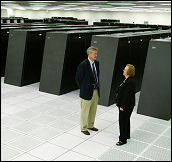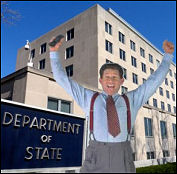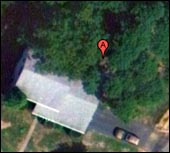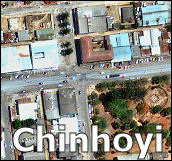 The GAO released on March 7 a report, dated February 2, that chastised the Bureau of Industry and Security (“BIS”) for confusion within BIS concerning the proper scope and interpretation of its own deemed export rule. The precise issue is one which has confused exporters even more than BIS and which relates to whether or not giving a foreign national access to an export-controlled dual-use item, such as a high-powered computer covered by ECCN 4A003, is a deemed export or not.
The GAO released on March 7 a report, dated February 2, that chastised the Bureau of Industry and Security (“BIS”) for confusion within BIS concerning the proper scope and interpretation of its own deemed export rule. The precise issue is one which has confused exporters even more than BIS and which relates to whether or not giving a foreign national access to an export-controlled dual-use item, such as a high-powered computer covered by ECCN 4A003, is a deemed export or not.
The question revolves around the meaning of “use” under the Export Administration Regulations (“EAR”). For example, in the case of supercomputers controlled by ECCN 4A003, the corresponding technology ECCN 4E001 defines controlled technology as technology “for the “developmentâ€, “productionâ€, or “use†of equipment” controlled by ECCN 4A003. “Use” is defined in the EAR as “[o]peration, installation (including on-site installation), maintenance (checking), repair, overhaul and refurbishing.” BIS has interpreted this definition to mean that the mere operation of a dual use item by a foreign national is not a deemed export; rather, a deemed export occurs only when the foreign national is given information that would permit the foreign national to engage in all six activities defined as use.
Since 1994, the GAO has been complaining that this definition is unclear because it does not take into account that controlled information is often transferred in the course of training a foreign national to use a dual use item. Presumably this means that GAO thinks that in teaching a foreign national how to operate the item, an employer or university will also transfer information relating to installation, maintenance, repair, overhaul and refurbishing of the dual use item.
Further confusion exists with respect to dual use items that are being used for fundamental research. According to the GAO report some BIS officials have said that in such an instance there is no deemed export, presumably even if information on all six use aspects is transferred. The GAO report cites an instance where this confusion caused BIS to flip-flop on license applications by the NIH designed to permit foreign nationals to work at a facility with controlled equipment. Initially, NIH took the position that because it was engaged in fundamental research, no deemed export was occurring. When BIS told NIH in 2008 that it needed export licenses notwithstanding that it was only engaged in fundamental research. Between August 2008 and December 2009, NIH applied for 37 deemed export licenses to permit foreign nationals to operate controlled equipment. In December 2009, BIS reversed course and told NIH that no licenses were necessary because NIH was engaged in fundamental research.
So which is it? Frankly, it seems to me that the project in which the controlled item is engaged is irrelevant. If a 4A003 supercomputer is being used to, say, play Jeopardy, that doesn’t mean that you could transfer to a foreign national information on how to operate, install, maintain, repair, overhaul and refurbish that computer. But what I think isn’t important. What’s important is what BIS thinks, and it seems to be of two minds on the issue.
 It’s been a while since this blog has seen one of the infamous press releases from a company announcing that the company has registered with the Directorate of Defense Trade Controls (“DDTC”). A reader today brought to my attention a press release from Rave Computer announcing that it is now “ITAR registered.”
It’s been a while since this blog has seen one of the infamous press releases from a company announcing that the company has registered with the Directorate of Defense Trade Controls (“DDTC”). A reader today brought to my attention a press release from Rave Computer announcing that it is now “ITAR registered.”
 Posted by
Posted by  Category:
Category: 

 From the department of low-hanging fruit, the topic of today’s post is an
From the department of low-hanging fruit, the topic of today’s post is an  According to an
According to an  For all you lawyers chomping at the bit to provide legal representation to Col. Gaddafi and the government of Libya, I have, as they say, good news and bad news.
For all you lawyers chomping at the bit to provide legal representation to Col. Gaddafi and the government of Libya, I have, as they say, good news and bad news.  The GAO released on March 7 a
The GAO released on March 7 a 

